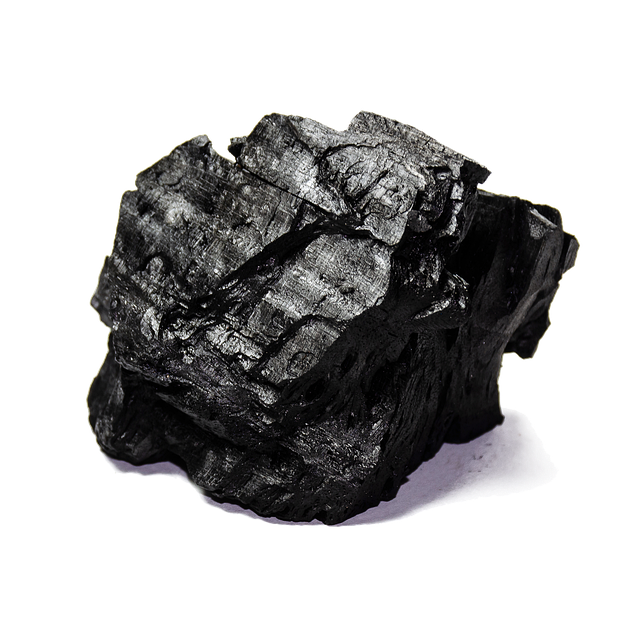
Activated charcoal has gained popularity as a potent natural tool for detoxification and cleansing. With an ability to bind to a wide range of toxins and support overall well-being.
Derived from various sources such as coconut shells or wood, activated charcoal undergoes a unique process that renders it highly porous and capable of adsorbing toxins and chemicals.
By harnessing its unique adsorptive properties, activated charcoal supports the elimination of a wide range of toxins and unwanted substances, reducing our exposure to environmental pollutants and promoting a healthier digestive system.
Understanding Adsorption:
Activated charcoal operates through a process known as adsorption, which distinguishes it from absorption.
Unlike absorption, where substances are taken up and assimilated into the body’s tissues, adsorption is a surface-based phenomenon. The porous nature of activated charcoal enables it to attract and trap various toxins, chemicals, and unwanted substances on its surface, preventing their absorption into the bloodstream.
The Benefits of Activated Charcoal for Detoxification:
Removing Environmental Toxins:
Activated charcoal has the remarkable ability to adsorb a variety of environmental toxins that we encounter daily. These include pollutants from air and water, heavy metals, pesticides, and other harmful chemicals. By adsorbing these toxins, activated charcoal can help reduce our overall toxic load, supporting the body’s natural detoxification processes.
Alleviating Digestive Issues:
Activated charcoal is well-known for its effectiveness in reducing symptoms of digestive distress. It can adsorb gases produced during digestion, helping alleviate bloating, flatulence, and abdominal discomfort. Additionally, activated charcoal can adsorb toxins from food and potential microbial toxins, offering relief from food poisoning, indigestion, and gastrointestinal upsets.
Filtering Water:
Another practical application of activated charcoal is its use in water filtration systems. Due to its adsorptive properties, activated charcoal can effectively trap impurities, chlorine, volatile organic compounds (VOCs), and other contaminants present in water sources. Using activated charcoal filters can help improve the taste, odor, and overall quality of drinking water.
Quality Matters: Sourcing High-Quality Charcoal
Make sure you choose high-quality, food-grade activated charcoal from reputable sources to ensure purity and efficacy.
How is Activated Charcoal Made:

The production of activated charcoal begins with sourcing high-quality charcoal, typically derived from natural materials like coconut shells, wood, or bamboo. These materials are selected for their porosity and ability to retain impurities effectively.
Carbonization:
The first step in the process is carbonization. The selected raw materials are heated to high temperatures in an oxygen-deprived environment. This process removes any volatile compounds and moisture, leaving behind pure carbon in the form of charcoal.
Activation:
After carbonization, the charcoal undergoes an activation process. There are two main methods used for activation: chemical activation and steam activation.
Chemical Activation:
In this method, the charcoal is treated with chemicals like phosphoric acid or zinc chloride. The chemicals create a reaction that enlarges the surface area of the charcoal and develops a network of tiny pores. This increases its adsorption capacity, allowing it to effectively trap toxins and impurities.
Steam Activation:
In steam activation, the charcoal is exposed to high temperatures and steam. The steam reacts with the carbon, creating pores and increasing the surface area. This process produces highly porous activated charcoal with an extensive network of interconnected pores. This is the Best type for internal detox use.
Cooling and Cleaning:
Once the activation process is complete, the activated charcoal is cooled down and carefully crushed and sieved to achieve the desired particle size. Activated charcoal’s unique manufacturing process results in a highly porous substance with an enormous surface area. This structure enables it to effectively adsorb and trap a wide range of toxins, chemicals, and impurities.
It’s important to note that not all charcoal products are created equal. Activated charcoal specifically goes through the activation process, which distinguishes it from regular charcoal used for grilling or cooking purposes.
Therefore, when seeking activated charcoal for detoxification or other uses, be sure to select a product explicitly labeled as “activated charcoal” to ensure its effectiveness.
Using Activated Charcoal:
By harnessing its unique adsorptive properties, activated charcoal supports the elimination of a wide range of toxins and unwanted substances, reducing our exposure to environmental pollutants and promoting a healthier digestive system.
You will be able to find food grade Activated Charcoal as powdered form and as tablets.
Powdered: Just add 1-2 teaspoons of powder into a glass, fill with water and stir. This can be taken whenever you feel you need it or daily as part of a detoxification program.
Tablets: Be aware of the ‘filler’s and hidden extra bulking agents etc, look for the purest option you can find. Tablets can be taken as per the product instructions.
Maintain proper hydration when using activated charcoal to support its elimination of toxins from the body.
Incorporating activated charcoal as part of a holistic approach to detoxification can provide numerous benefits for overall well-being.